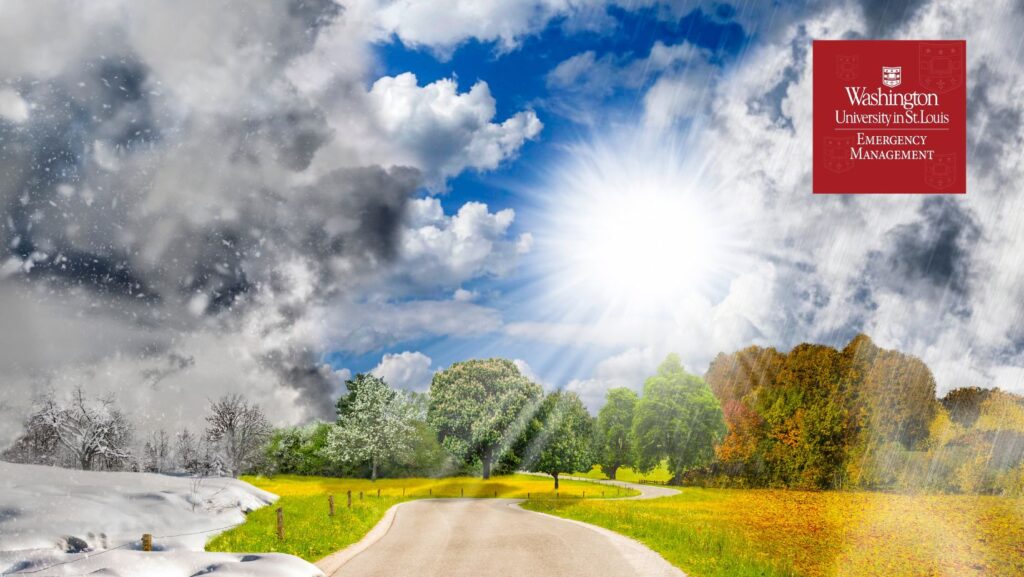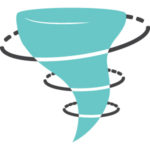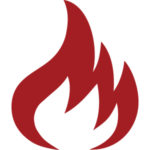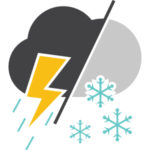
Knowing how to respond during an emergency is crucial to your personal safety and the well-being of those around you.
Explore information for the specific hazards that are most likely to impact the WashU campuses below.
The St. Louis area is very susceptible to tornadoes. Even with improved warning times, it is critical to know how to quickly respond when the warnings go out.

Tornadoes are common in the Midwest. These violently spinning columns of air, with rotating speeds that can exceed 200mph, can leave a destructive path more than a mile wide and several miles long.

Fires pose a significant risk due to their destructive power that and ability to spread quickly. Knowing what to do during a fire situation will save lives.

Severe weather has the potential to occur year-round in St. Louis. Thunderstorms can bring strong winds, hail, lightning and flash flooding, while winter storms may include sleet, freezing rain, ice and heavy snow fall.

Although most floods that occur on campus do not pose an immediate life safety threat, flood waters can quickly cause damage to buildings and utilities that may pose risks to personnel working in the area.
The Washington University Emergency Management Department’s Mitigation Program regularly and systematically utilizes resources to lessen the impact of an emergency or disaster on campus with risks identified in the Hazard Identification Risk Assessment (HIRA).
The Mitigation Program provides technical assistance through implementation of applicable codes and ordinances, as well as tracking ongoing loss and repetitive loss from hazards. The Migration Program goals are to minimize building vulnerabilities of WashU facilities to WashU hazards, reduce hazards vulnerabilities to faculty, staff, students and visitors on WashU campuses, and to promote awareness and involvement through risk reduction activities education and outreach to the WashU community.
Technical Assistance
The Emergency Management Program, consistent with the with scope of the mitigation program, provides technical assistance for WashU community stakeholders. Resources provided below support technical assistance through internal and external links. For any other technical assistance needed, contact WashU Emergency Management at WashUReady@wustl.edu or 314-747-5092.
FEMA Mitigation Fact Sheets
FEMA Hazard Mitigation Planning Resources
Mitigation Best Practices
National Flood Insurance Program Technical Bulletins
Safe Rooms for Tornadoes and Hurricanes
FEMA Safe Room Resources
City of St. Louis Building Codes
2018 International Building Codes
2015 International Fire Code
St. Louis County Building Codes
FEMA 426 Reference Manual to Mitigate Potential Terrorist Attacks Against Buildings
DHS Continuous Diagnostics and Mitigation Cyber Threat Mitigation Program
CDC Community Mitigation Guidelines to Prevent Pandemic Influenza
2020-2025 St. Louis Regional Hazard Mitigation Plan
Resources